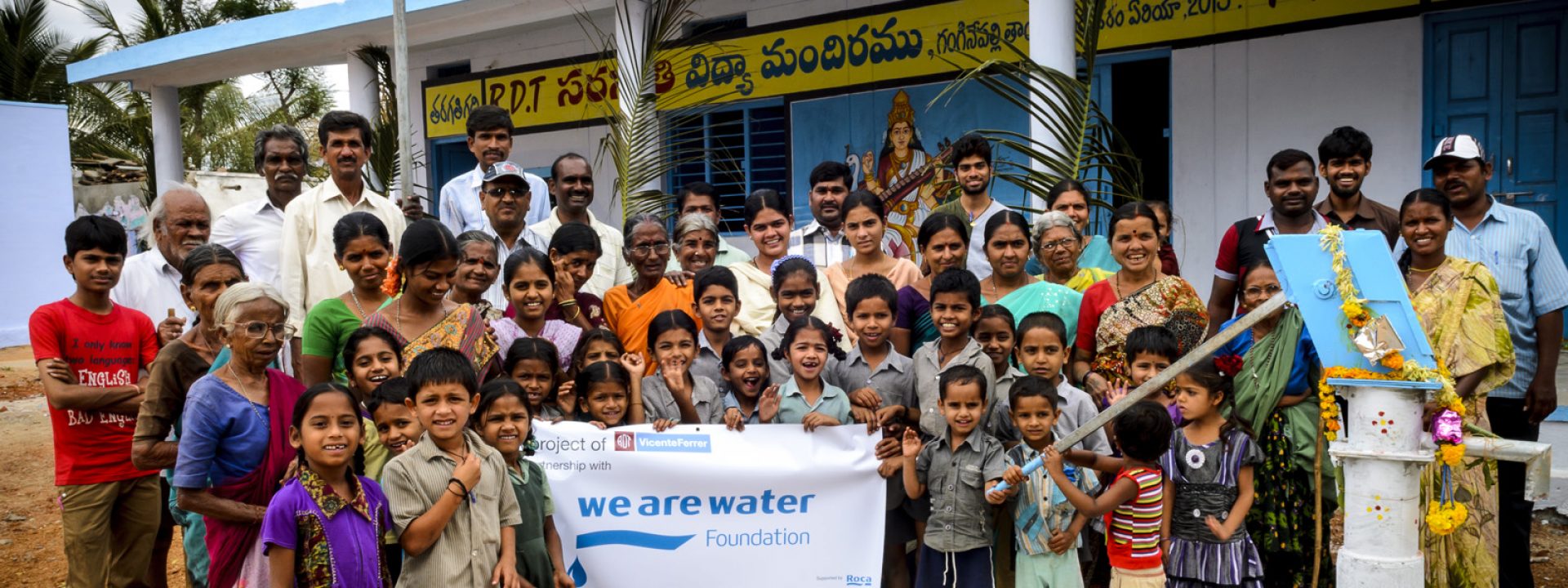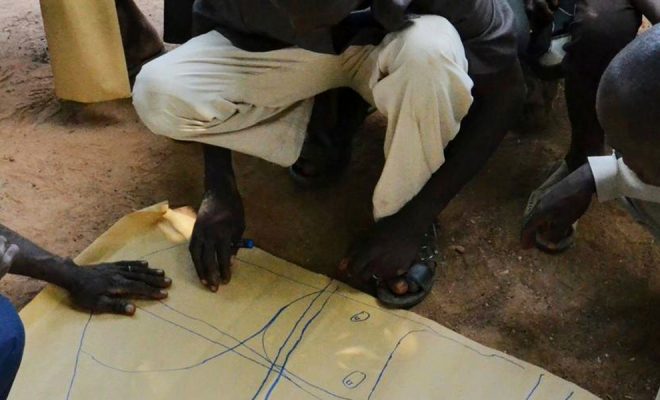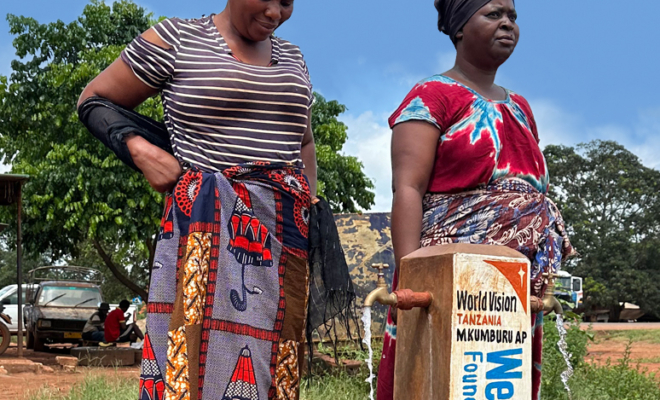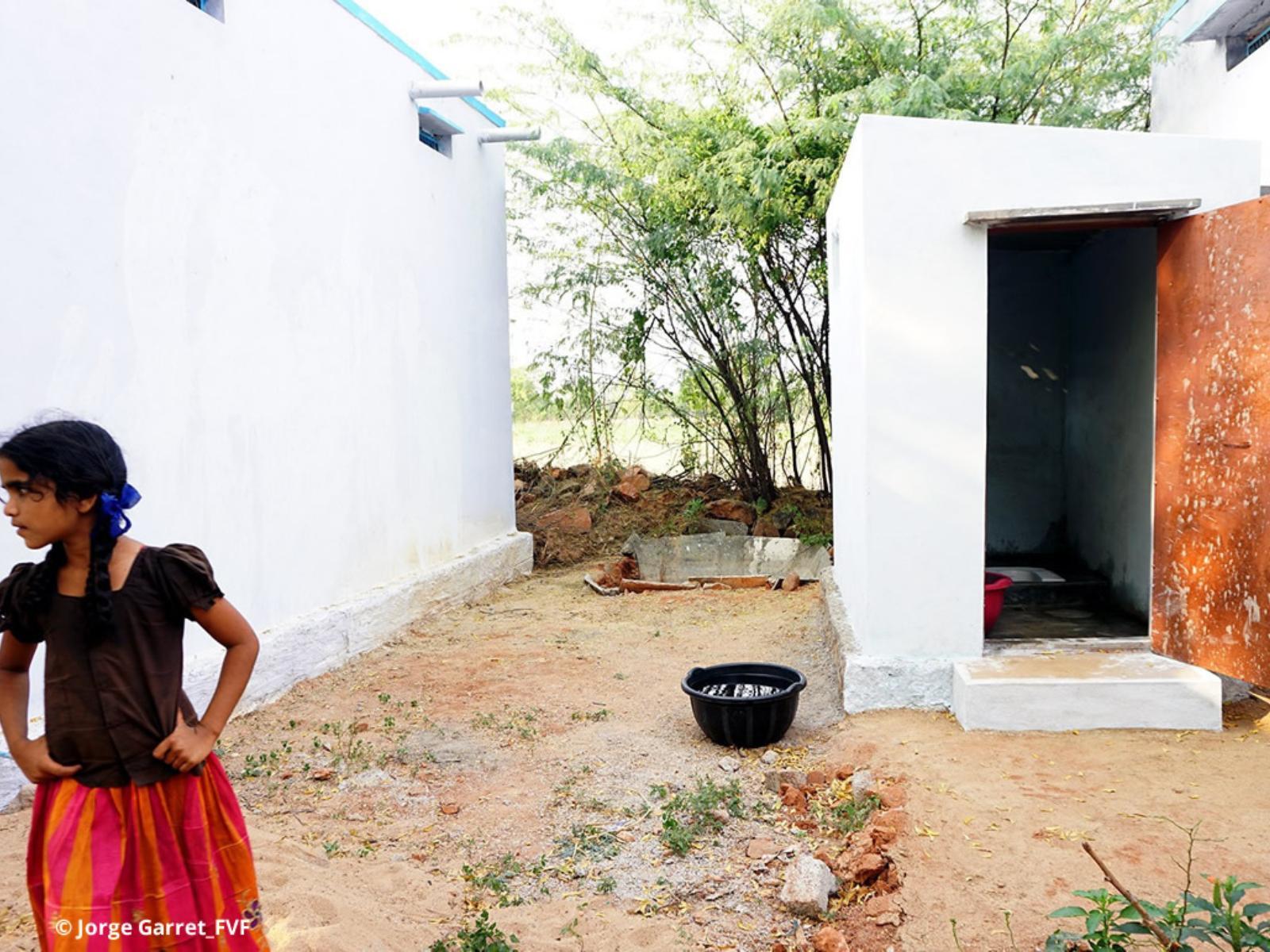
A latrine that responds to the needs of the community, of climate, of culture is the first step towards growth. The access to safe latrines is the key factor to achieve the sanitation objectives established by the SDG6, “Ensure availability and sustainable management of water and sanitation for all”. It is a huge challenge: 2.4 billion people do not have access to adequate sanitation facilities. Among them there are 673 million that still defecate in the open.
The experience of the Foundation’s projects
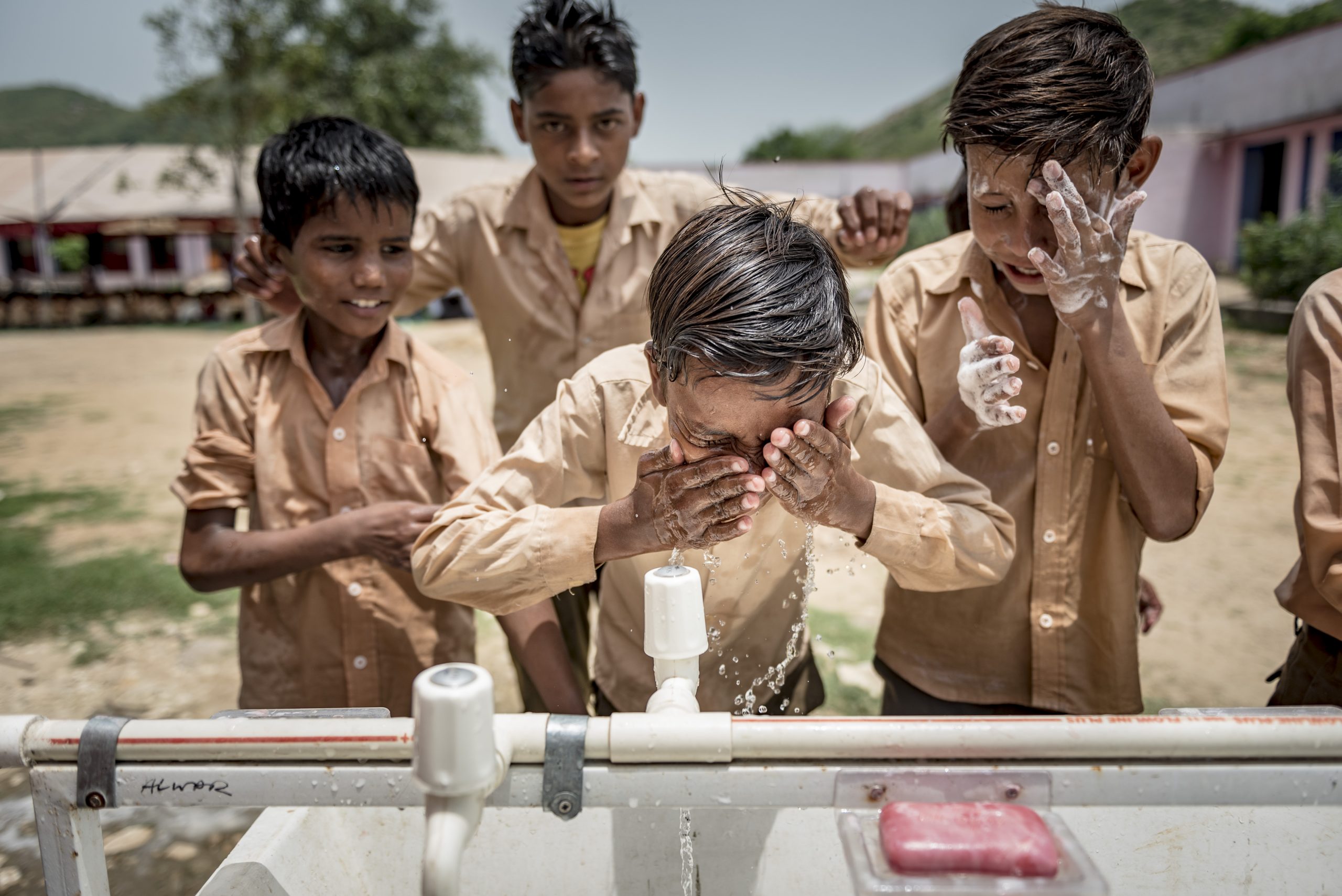
©Carlos Garriga/ We Are Water Foundation
After over 10 years developing projects that have benefited more than 675,000 people, the We Are Water Foundation has gained a vast experience in the problems associated with the installation and use of latrines in the most disadvantaged areas, as well as in their significance for the community.
Many of these projects are directly related to sanitation and to the access to safe latrines and this experience has enabled the creation of the Construction manual of latrines and wells, which compiles the fundamental aspects of their construction and installation, also guaranteeing their sustainability over time.
What is the ideal location for a latrine? How is it possible to air it? How should it be built to make it easier for children to use it? How should it be maintained to make it sustainable? These all seem very simple questions but the right answers change depending on many factors, such as the sociocultural or climatic ones: there are evident climatic differences between a school in Guinea-Bissau or in a small village of the Chaco-Chuquisaqueño in Bolivia; as there are also significant cultural differences in the use between the students in Zagora in the Moroccan High Atlas Mountains, and those in Mymensingh, in Bangladesh or Andhra Pradesh in India.
Different cultures, different situations, different solutions
Regarding sanitation and in particular the use of the latrine, nothing works the same in the different cultures, economies and climates. One significant example is the project carried out by the We Are Water Foundation and UNICEF in Burkina Faso, which applies the CLTS approach (Community-Led Total Sanitation).
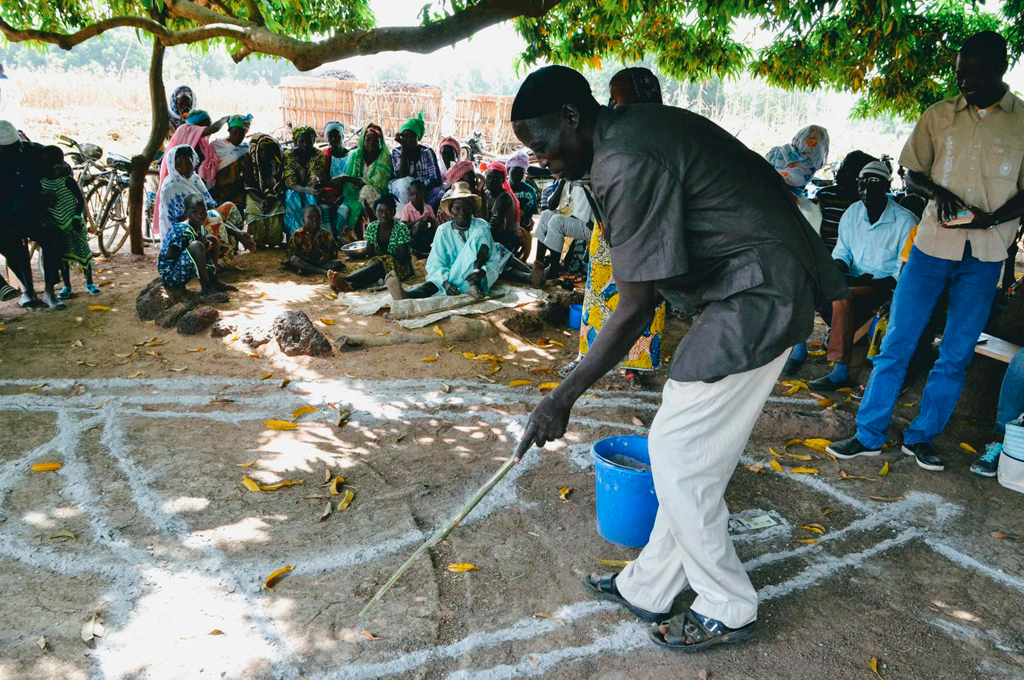
©UNICEF
The goal is the empowerment of communities for the building and maintenance of their own latrines and hygiene education to eradicate open defecation.
In these cases, the aim of the facilitators of aid projects is to raise awareness by provoking a sense of shame, and from there on to promote the conviction that the community can obtain by itself the knowledge and means to end a scourge that causes diseases, childhood mortality and limits their possibilities of economic and social growth.
A very different case would be the needs of war refugees, like the Syrians in Lebanon.The We Are Water Foundation collaborates with Acción Contra el Hambre in a project to help both Syrian boys and girls and host communities meet their needs in terms of water and sanitation in schools, so that they can adequately respond to current and future impacts. More specifically, the project will contribute to the improvement and access to Water and Sanitation services in the Al Rafeed Intermediate School in Al Rafeed, in the Central region of the Bekaa Valley.
The project shows a reference model: reconstruction of the connection to the water and latrine system for students and teachers; construction of handwashing points with adequate drainage close to each latrine; planning of promotion activities of good hygiene habits; and what is really essential, the creation and support of a Water and Sanitation Committee inside the school, as the provision of faucets, basins, WCs and consumables, such as soap, is not enough to have a significant impact on the occurrence of water-related diseases. The hygiene promotion campaigns are essential to achieve an effective improvement of the health of students.
The goal of United Nations in World Water Day is to remind everyone that having safe latrines is essential to attain health, economic development, education and to provide dignity and safety to women. This must be achieved by 2030.


